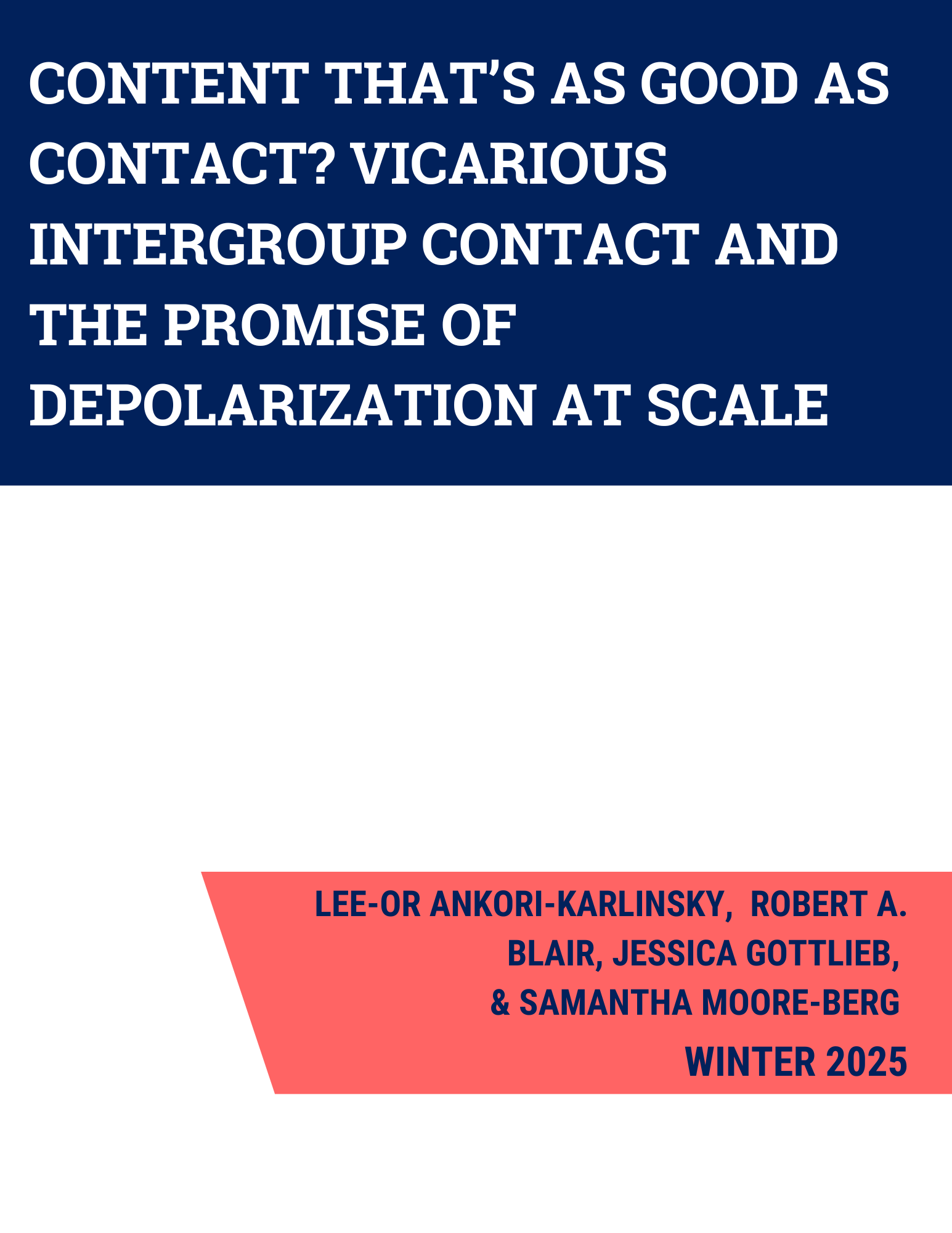Content That’s as Good as Contact? Vicarious Intergroup Contact and the Promise of Depolarization at Scale

Can just watching healthy political disagreement reduce polarization?
A study conducted in 2024 says yes.
Researchers tested the impact on participants of watching a documentary that showed everyday Democrats and Republicans participating in a civil, structured dialogue. The result? A measurable drop in affective polarization among those who watched it. Participants felt less contempt and more empathy for those on the “other side.”
This matters because while face-to-face empathy-building workshops are powerful, they’re hard to scale. Mass media can bring the benefits of intergroup contact to millions, cheaply and effectively. This “vicarious contact,” as the researchers refer to it, can be just as effective as real contact.
And of course this insight doesn’t just apply to documentaries. Fictional stories — TV shows, films, short-form social media posts — can model respectful disagreement, show the humanity behind our differing beliefs, and spotlight the best in people we often misunderstand.
This study adds compelling evidence that well-crafted storytelling can move hearts and shift minds across divides.
And this insight doesn’t just apply to documentaries. Fictional stories—TV shows, films, even short-form dramas—can model respectful disagreement, show the humanity behind differing beliefs, and spotlight the best in people we often misunderstand.In an age of deep partisan division, entertainment media has untapped potential to bridge divides—not by lecturing, but by telling rich, compelling stories that let us see each other again.
